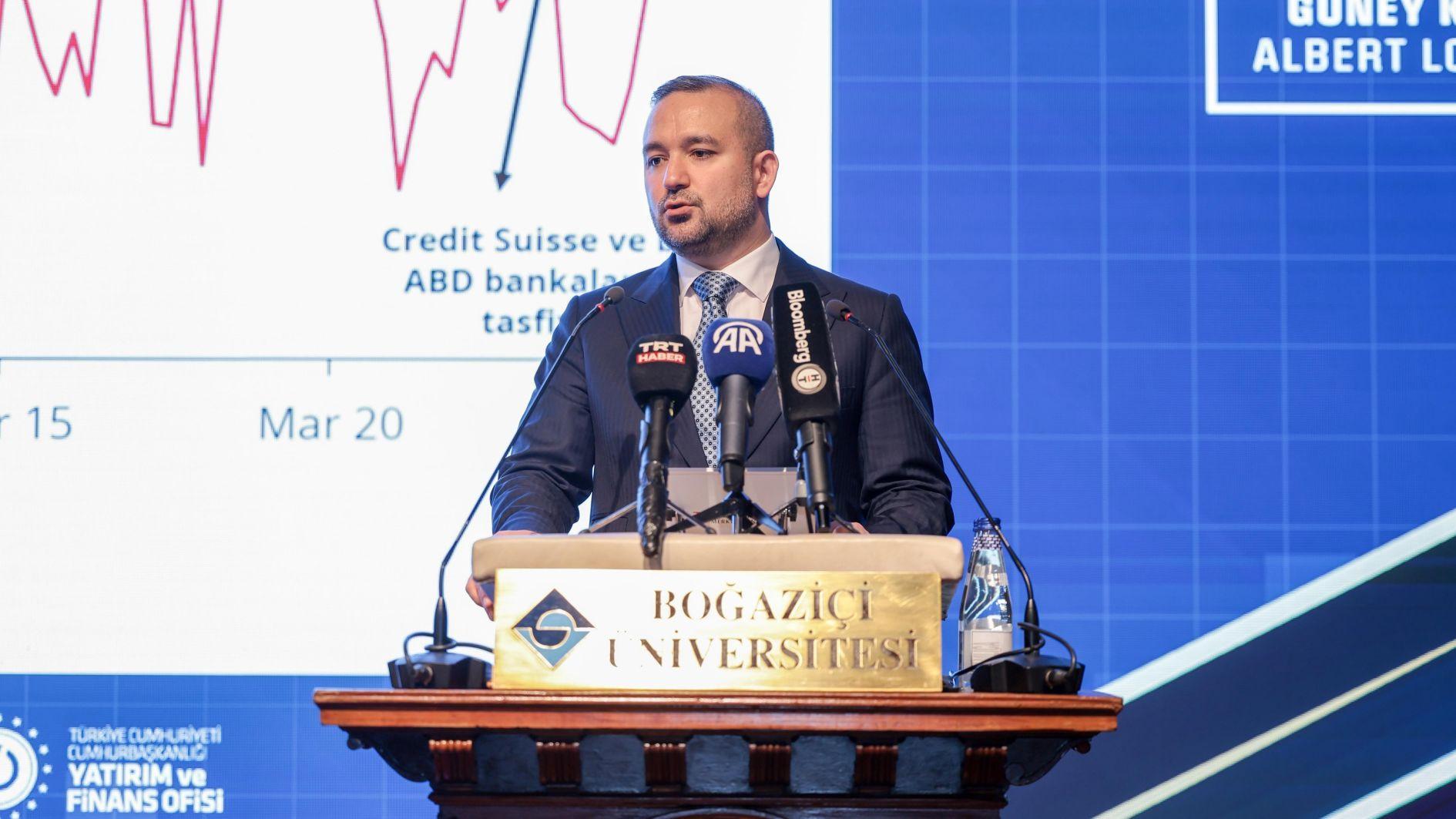
Inflation expectations remain above the Central Bank’s disinflation path, said Governor Fatih Karahan, adding that this makes it necessary to maintain the bank’s tight and determined stance in monetary policy.
The improvement in inflation expectations stalled in April due to recent developments in financial markets, Karahan said in a speech he delivered at an event at Boğaziçi University in Istanbul.
He, however, noted that commodity prices are moving more moderately, contributing to disinflation, while domestic demand is declining due to the bank’s monetary policy measures.
“Considering the heightened uncertainties compared to the previous period, we are maintaining a cautious and tight monetary policy stance. Our tight monetary policy stance will continue until a permanent decline in inflation and price stability is achieved,” Karahan said.
In the upcoming period, they will continue to maintain our determined stance in monetary policy and act in a way that ensures the continuation of disinflation, he vowed.
Türkiye’s annual inflation rate fell for the 11 consecutive month to 40-month low of 37.8 percent in April.
“Indicators suggest that annualized inflation is slightly above 30 percent. This, in turn, indicates that the disinflation process will continue," he said.
Since March, they have assessed the potential risks that recent developments in financial markets may pose to the inflation outlook and have taken steps to increase monetary tightening, Karahan also noted.
“These are steps to increase the funding costs of the Turkish lira, liquidity measures, and actions to limit foreign exchange demand,” the governor explained.
The increased confidence of both domestic and foreign residents in the lira has positively impacted reserves, Karahan said, however, noted that recent local and international developments have led to a rise in foreign exchange demand, particularly from abroad.
Gross reserves, which stood at $124 billion on March 22, 2024, increased to $171 billion by March 14 this year, before declining to $139 billion on May 2, he noted.
He further highlighted that net reserves, excluding swaps, rose from negative $65 billion on March 22, 2024, to $66 billion on March 14, 2025.
As of May 2, net reserves were recorded at approximately $14 billion, Karahan said.
“During the period from March 14 to May 2, 70 percent of the foreign exchange demand originated from abroad, while domestic demand remained limited," he explained.